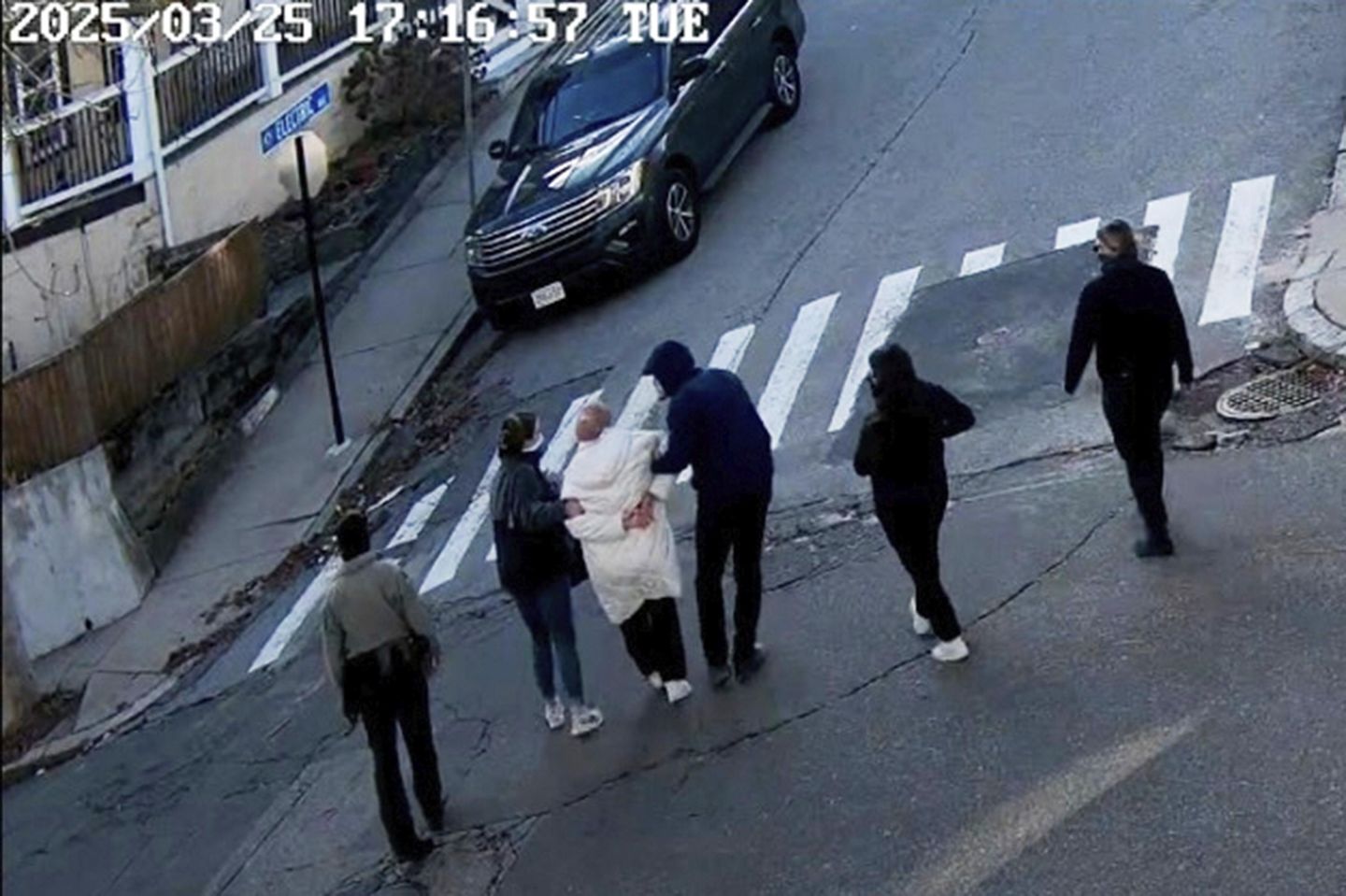
A federal appeals court instructed the government to return Rumeysa Ozturk to Vermont so she can challenge her arrest and potential deportation, rejecting the administration’s attempt to keep her in detention in Louisiana.
Ms. Ozturk, a citizen of Turkey, is one of the high-profile cases of students the administration targeted for deportation, citing pro-Palestinian activism.
The First U.S. Circuit Court of Appeals, while not ruling directly on her arrest, was skeptical of the justifications the government has given, saying her only offense appears to have been co-writing an op-ed in the student newspaper at Tufts University urging the Massachusetts school to become more pro-Palestinian in its dealings.
The court, in an opinion signed by all members of the three-judge panel, also cited Ms. Ozturk’s arrest by “six heavily armed” officers, some wearing masks, “without warning on the street.”
At issue before the appeals court, however, is where Ms. Ozturk’s challenge to her arrest and detention should be heard.
The government argued that since she is now in custody in Louisiana, that’s the proper place under habeas petition rules. Ms. Ozturk, though, argues she was repeatedly transferred after her arrest in Massachusetts, including to Vermont for several hours, which is where she says her case should be heard.
The appeals panel agreed, saying she tried to do everything right in her petition and it was the administration that confounded things.
“Any confusion about where habeas jurisdiction resides arises from the government’s conduct during the twenty-four hours following Ozturk’s arrest,” the judges wrote.
Habeas petitions are narrow but powerful challenges to someone’s detention. They are supposed to be brought in the location where someone is being held.
Ms. Ozturk’s lawyers brought their initial challenge in Massachusetts, where she was arrested. But by the time the petition was filed, she was in Vermont. And by the time the case was transferred to Vermont, she was in a detention facility in Louisiana.
Administration lawyers said that’s where her habeas petition should be handled.
But the judges said since she was in transit when the petition was first filed in Massachusetts and ended up in Vermont, that is where it should be heard.
The judges said the longer the government fights the jurisdictional issues in her case, the longer she has to wait to get a ruling on whether her detention is valid.
They said there’s also little danger to the government, because if Ms. Ozturk loses her case she’ll end up back in the immigration detention facility in Louisiana.
Ms. Ozturk’s defenders say the immigration case against her is an attempt to punish her for exercising her First Amendment speech rights, and her detention in Louisiana is an attempt to keep her on hostile ground.
“Every day that Rumeysa Ozturk remains in detention is a day too long,” said Esha Bhandari of the American Civil Liberties Union. “We’re grateful the court refused the government’s attempt to keep her isolated from her community and her legal counsel as she pursues her case for release.”












